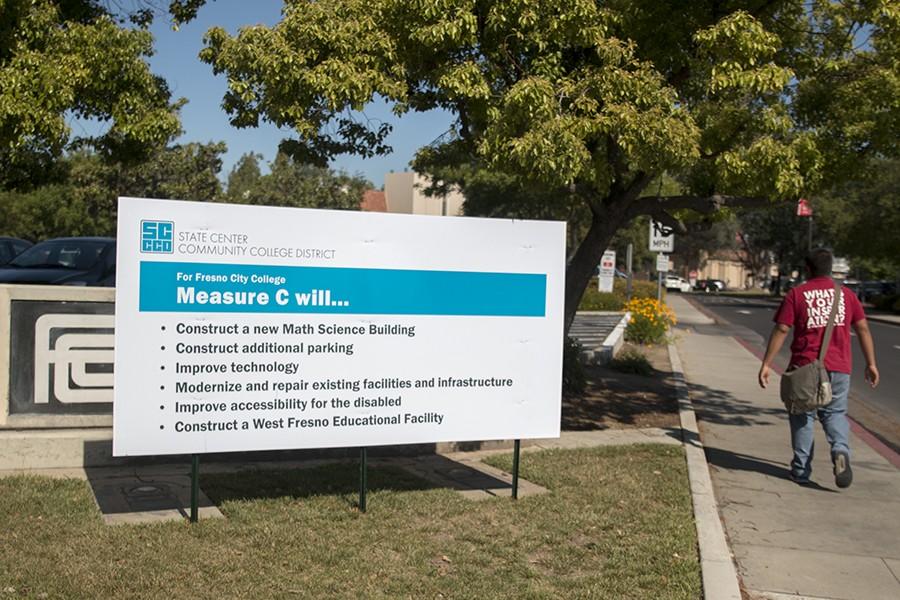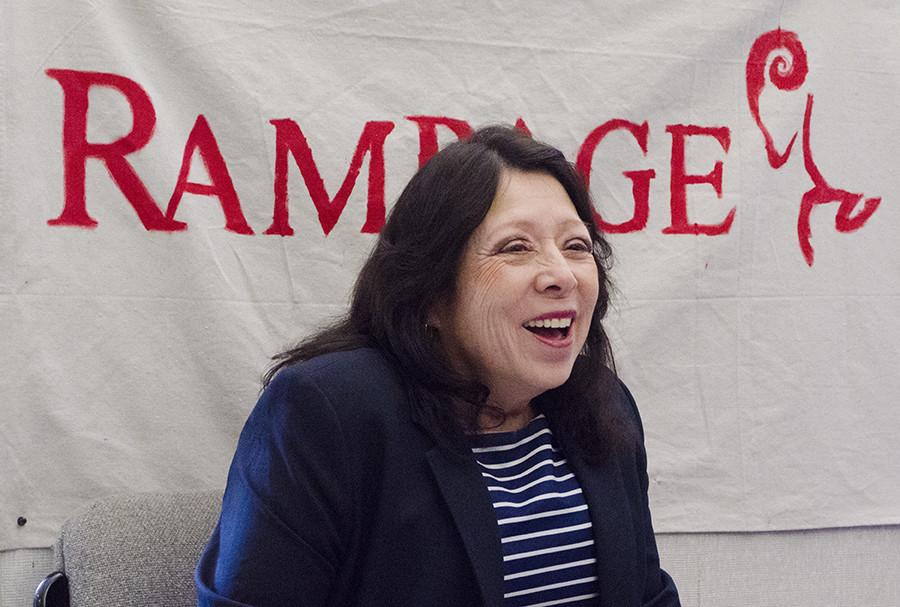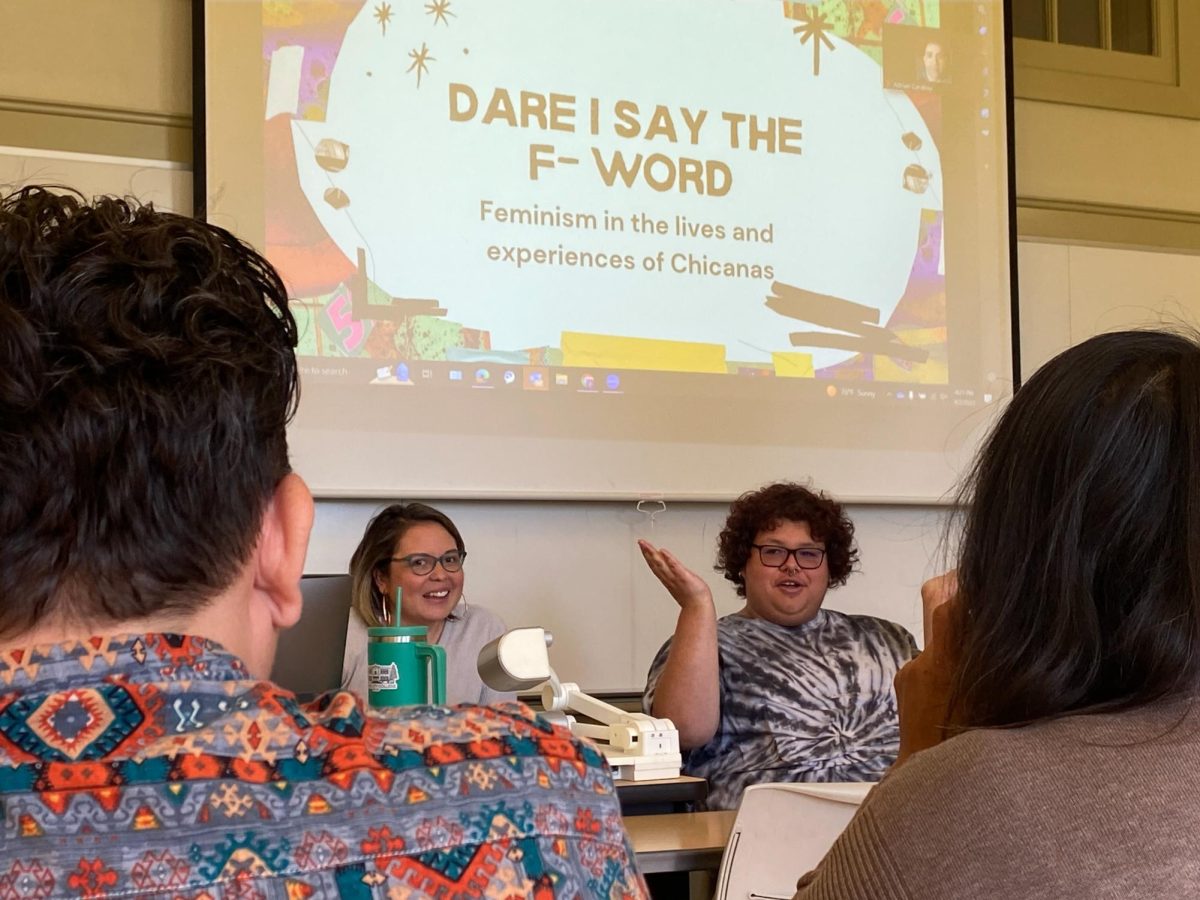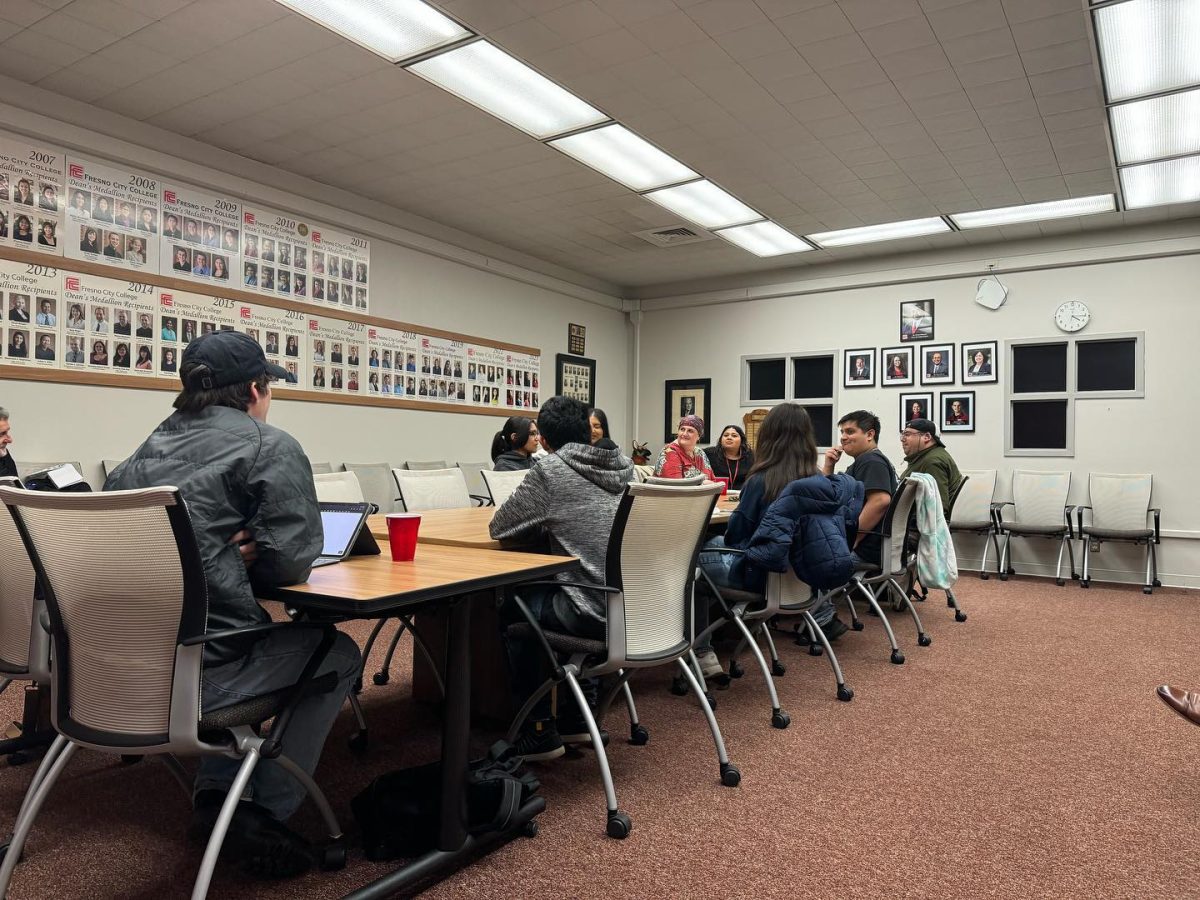California Community colleges, including Fresno City College, will be severely impacted if Proposition 30, the Sales and Income Tax Increase Initiative on the Nov. 6, 2012 ballot fails to pass.
Failure will have “a very significant and devastating effect on the services that community colleges can provide to students,” said Dan Troy, vice chancellor for College Finance and Facilities Planning at the California Community Colleges Chancellor’s office.
“We’ll be hit with a mid-year trigger cut that will be about $338 million in addition to losing the $210 million that we would get in new money,” Troy added.
Troy made these pronouncements on Wednesday during a teleconference with community college media outlets. Troy joined Erik Skinner, who then was acting chancellor of the California Community Colleges and Rich Copenhagen, president of the Student Senate for California Community Colleges to discuss the impact of state budget cuts, drop in enrollment and the implications of passage or failure of Proposition 30 and Proposition 38 and how those implications could result in a direct hit on community colleges.
“The 2012 to 2013 budget assumes the passage of the governor’s ballot initiative, Proposition 30. Essentially what proposition 30 does is that it rakes income taxes on high income earners who earn a minimum of $250,000 or more for about seven years,” Troy said. “It would also raise the statewide sales tax for four years by one quarter of one percent.”
Troy added that the revenue from the Proposition would help prop up the budget for education in California. That would allocate $250 million each for the UC and CSU systems, leaving $5.4 billion for K-14 education. That allocation, according to Troy, holds great significance to the community college system and its budget.
“To be specific, if prop 30 passes, in the 2012 to 2013 year community colleges will receive $210 million in new money in addition to what was received in 2011 to 2012,” said Troy. “So we would be going in the right direction fiscally after all these years of cuts.”
Passage of Proposition 30 would also make room for about 20,000 new students in comparison to last year. However, if the initiative fails, the community college system will be hit with devastating cuts.
The California Community College system will see a loss of 180,000 students plus an additional 20,000 that could be gained by the initiative’s passage. “If Proposition 30 fails, 200,000 students will be denied a higher education,” Troy said. “The total loss that would be attributed to the failure of the governor’s initiative would be $548 million and 200,000 students.”
Skinner started the conference by enumerating the erosion of funding and severe decrease in the service provided to the state’s community college students. Over the past three years, he explained, the funding for community colleges has been cut by $809 million. This translates to a 12 percent cut over three years. Skinner said that the cuts have come at the worst possible time.
“This is a significant cut that has come at a very difficult time, given the soaring demand for higher education in California,” Skinner said.
These cuts have resulted in denial of enrollment for students hoping to get a higher education. From 2008 to 2009, Skinner explained, California Community Colleges served 2.9 million students. The system now serves 2.4 million, a half-million reduction in students that is directly related to state funding levels, “a 17 percent reduction in enrollments.”
Cuts mean fewer courses or sections open to students. “The $809 million in cuts that the colleges have endured has largely translated into pure course sections being offered,” said Skinner. Cutting classes is the only mechanism colleges have to directly control expenditures, “so when their funding is cut, they have to reduce their number of course sections,” Skinner said.
Skinner also stated that even with these cuts, the demand for a community college education has increased. This increase is due to several factors, including the highest rate of graduating high school classes in the state’s history, the influx of workers needing to gain new skills to get back into the workforce and the return of soldiers from Afghanistan and Iraq.
“All of these forces are coming together at the same time to drive up the demand for a community college education,” said Skinner, “but unfortunately, the cuts have undermined the ability of the colleges to provide those services.”
After Skinner put current matters into perspective, Troy, broke down the Proposition 30 initiative piece by piece.
“After all these hits we’ve taken in recent years, the state simply can’t afford that kind of devastation,” said Troy.
Troy reported that his office has also surveyed leaders of college campuses to see how they would deal with the failure of Proposition 30. He said that some colleges have enough in reserves to survive the year without making further reductions in services but the brunt of the failure would be felt in subsequent years. Some will have to reduce services to students, make cuts in staffing and reduce furloughed staff salaries. Most of the impact, however, will head toward class offerings.
“In fact 91 percent of colleges who responded to our survey said that they would be reducing the number of course offerings for the 12-13 year if this proposition fails,” said Troy.
Fresno City College has not escaped these cuts and losses to enrollment. According to Tony Cantu, FCC president, the budget that the college is working under was built to reflect the worst case scenario. That would be the failure of Proposition 30. As for the reduction in enrollment, FCC has been reduced significantly.
“Since 08-09, there have been approximately 3,600 fewer students,” said Cantu.
FCC’s current budget projection is at $66.6 million, a $2.7 million reduction since the 2011-2012 year. This budget is a reflection of the possible outcome of the vote on Proposition 30. This budget has also affected the staffing of FCC as the cuts continue to devastate the community college system.
“We have had positions—faculty, classified professionals, and administrative–that have not been filled,” said Cantu.
While proposition 30 has the ability to help the community college system if it passes, Proposition 38, the Munger initiative, will not contribute any funds to the community college system. According to Troy, the revenue generated from the Munger initiative would go only to K-12 and early childhood development education.
This means that if proposition 38 passes but Proposition 30 does not, community colleges will be hit by the devastating trigger cuts that would be coming in January. Also, the state cannot pass both initiatives. If Propositions 30 and 38 both poll more than 50 percent, the initiative that receives more votes will pass.
The monetary loss is difficult enough to deal with but according to Rich Copenhagen, students will lose more than money. Copenhagen said that reducing the number of part-time faculty results in reduced innovation as well. He said the cuts in services would be devastating from a student’s perspective — whether it is financial aid, DSP&S or EOPS — students are experiencing the cuts first hand. These students, which the community college system aims to help, are being pushed out due to the budget cuts.
“Our students, who we should be helping most as a community college system,” Copenhagen said, “are being pushed out by these draconian cuts.”










